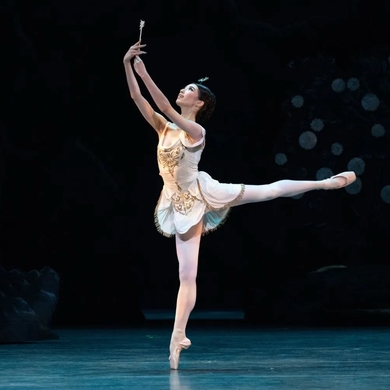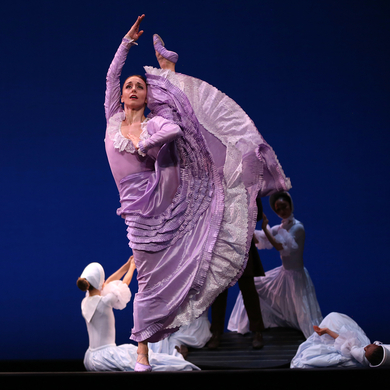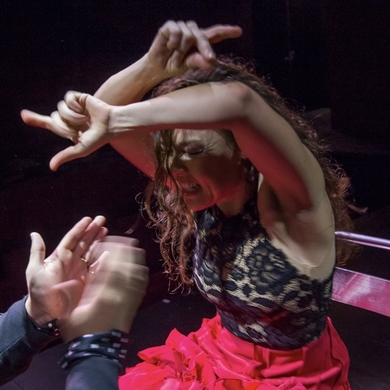Largely self-taught, Ali Chahrour has made his well-traveled dance theater from the materials at hand, in his native Lebanon: the keening voice, plucky oud, and steady drum of traditional Middle Eastern music; the love stories that many families, including his own, share of grieving mothers and lost sons in a country repeatedly ravaged by war; the semaphores of praying and mourning. Otherwise the work would fit right in to New York’s most experimental “spaces.” The performers dress in streetwear—dark T-shirts, jeans. The musicians are part of the action, which takes place in low, anti-theatrical light. The drama fractures into the dance equivalent of reaction shots. When I Saw the Sea, which premiered in Beirut in May, takes up a subject less personal to Chahrour than usual, though just as nationally charged: the migrant domestic workers from Africa and South Asia who are bound to their employers by the exploitative kafala system prevalent in the Middle East. Three women, including two such former workers, explore “love, motherhood, war, exile, and home”: in short, their dangerous, divided lives. —Apollinaire Scherr
Arts Intel Report
Ali Chahrour: When I Saw the Sea

A moment from When I Saw the Sea.
When
June 24–25, 2025
Where
Etc
Photo: © Lea Skayem
Nearby
1
Art
Hamburger Kunsthalle



